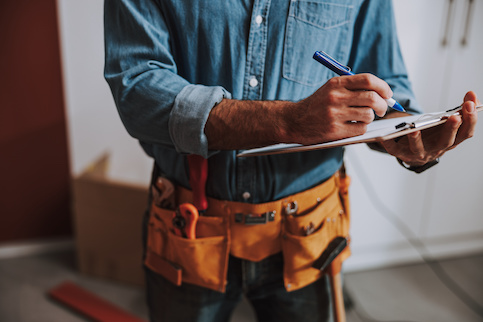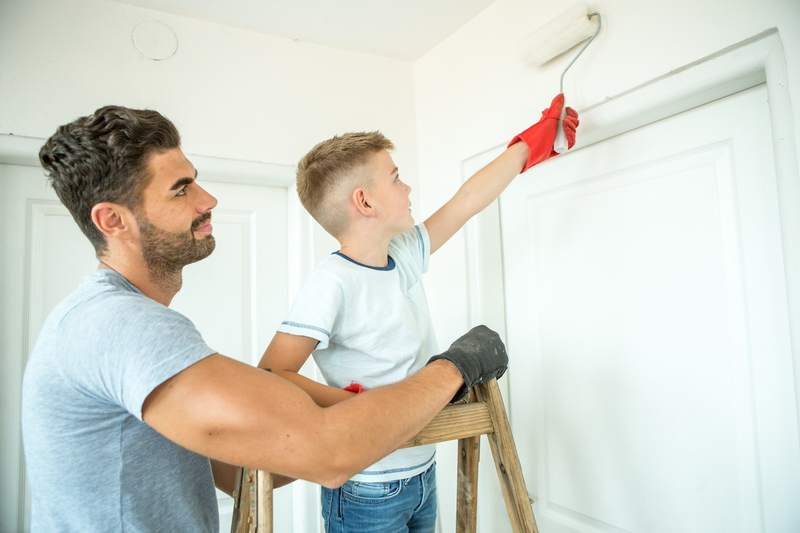Every worker deserves their wages, but unfortunate circumstances occur when professionals don’t receive payment for various projects. For instance, home improvements, renovations, car repairs and more are the result of the work of contractors and parts suppliers. They can file a mechanic’s lien against your home if they don’t receive the agreed-upon payment.
A mechanic’s lien can jeopardize your homeownership, forcing you to sell it to satisfy the unpaid wages. Even if the lien doesn’t make you take action, it will produce a defect in your home title, impeding your ability to sell it in the future. Here are the details on what a mechanic’s lien is and how to avoid and resolve it.
Understanding Mechanic’s Liens
A mechanic’s lien is placed against a home or property to retrieve payment for unpaid services or materials. Mechanic’s liens give suppliers and contractors the legal basis to demand payment for completed work or materials installed that were not paid for. Property owners can sometimes be responsible for unpaid debts if they paid a contractor or builder who didn’t pay subcontractors or material suppliers.
For example, say you hire a contractor to build a shed in your yard. The project is $4,000. Unfortunately, your car breaks down right before the project is finished, and you decide to use half of the funds you were going to use to pay the contractor to repair your car. As a result, you can’t pay the contractor in full when they complete the project.
The contractor has a few modes of recourse in this situation: First, they could sue you, initiating a lengthy, expensive legal process. On the other hand, they can file a mechanic’s lien against your home. Now, if you sell your home, the contractor has the right to take the missing payment from the proceeds. This situation can make selling your home more challenging, as another party has a financial interest in the transaction, potentially making it more expensive for the buyer and seller. The lien will only vanish when the contractor receives what you owe them.
See What You Qualify For
Buy A Home
Discover mortgage options that fit your unique financial needs.

Refinance
Refinance your mortgage to have more money for what matters.
Tap Into Equity
Use your home’s equity and unlock cash to achieve your goals.
Who Can Place A Mechanic’s Lien Against A Property?
Contractors, subcontractors and materials suppliers can place a mechanic’s lien against a home or other property. Remember, a mechanic’s lien comes into play when the homeowner fails to pay the entity providing goods or services. So, hiring a professional for a project doesn’t mean they automatically place a lien on your home.
However, mechanic’s liens can stay with the property. This feature of real estate means you could purchase a home with a lien on it and be responsible for it. Even though you weren’t the one who failed to pay the contractor, the lien is on the property, not any individual homeowner. For instance, you might purchase a home after the previous owner passes away without paying the contractor who installed a fence around the home. The mechanic’s lien stays on the home until the new homeowner pays the contractor.
How Does A Mechanic’s Lien Get Enforced?
Typically, an unpaid contractor must file a lien with their state within a specific time after completing their work. In addition, they usually must notify the homeowner of their actions, giving them one last chance to pay and avoid the lien.
Because the process requires specific legal paperwork, a mechanic’s lien involves a legal process where the contractor hires an attorney for assistance. In addition, enforcing a lien means initiating a lawsuit, and the contractor might be entitled to additional payment from the homeowner for legal fees.
After filing a lien and initiating the lawsuit with their lawyer, the professional seeking payment waits for a decision from a local court. If the situation is dire enough, the judge might order the homeowner to sell the property so they can repay their debts.
How Will A Mechanic’s Lien Affect The Home Or Property?
Generally, a mechanic’s lien is an obstacle when a homeowner wants to sell or refinance their property. As a result, they are effective methods of obtaining payment because they prevent the homeowner from selling their home and moving. In addition, buyers shy away from properties with title defects, meaning the homeowner has incentive to clear up the situation.
Title Defects
A title defect, also called a cloud on the title, is problematic for homeowners because it hinders home sales. Specifically, it presents a financial liability, lowers the sale value of the home and can dissuade buyers from pursuing a deal. As a result, buyers who want to purchase a home with a title defect (such as a mechanic’s lien) should require the seller to address the lien.
In addition, if the buyer gets the details on the lien, they could address it themselves. This option requires the buyer to have accurate information on all the title defects against the home; otherwise, they could end up purchasing a home that causes a host of financial challenges.
How To Avoid A Mechanic’s Lien
Therefore, avoiding a mechanic’s lien is recommended for homeowners. You can do so by paying professionals directly when they provide services. So, it’s best to pay any contractors, subcontractors and suppliers upon completion of the related project or as detailed in the service contract. Likewise, it’s best to clarify the payment terms before signing an agreement.
In addition, if money is tight, it’s better to enter a repayment plan than wait for a contractor to file a mechanic’s lien. You could also get financial help from a friend or family member to repay the debt and prevent a mechanic’s lien. Lastly, you could have the contractor sign a lien waiver if they’re willing. This document stops professionals from filing a mechanic’s lien, protecting the homeowner.
What To Do If A Lien Is Placed Against Your Property
If you’re a homeowner with a lien against your property, the best course of action is paying off the lien holder. This way, the lien will disappear, and your property will no longer be at risk of foreclosure.
If you can’t immediately pay the entire debt, you can also try to negotiate a payment plan with the lien holder. If you can reach an agreement, the lien holder won’t take action, and you’ll have time to repay the debt in installments.
Lastly, the lien might not be valid. For example, the contractor you hired might file a lien even though you paid them for the project. In this case, it’s best to dispute the lien in court to have it removed.
The Bottom Line
A mechanic’s lien comes from a professional seeking payment for a project or job. Unfortunately, the lien goes against the homeowner’s house, meaning they are vulnerable to losing a home or following a stringent payment plan through a court ruling. In addition, a mechanic’s lien clouds the title, meaning the homeowner has less control of their home and might have trouble selling it. As a result, it’s best to settle your debts with contractors instead of leaving them with using a mechanic’s lien as a last resort to receive rightful payment.
Mechanic’s liens can be intimidating, but you can negotiate them confidently and retain ownership of your home. Plus, you can fund home improvement projects through equity loans as you repay your mortgage.

Ashley Kilroy
Ashley Kilroy is an experienced financial writer who writes for solo entrepreneurs as well as for Fortune 500 companies. She is a finance graduate of the University of Cincinnati. When Ashley isn’t helping people understand their finances, you may find her cage-diving with great whites or on safari in South Africa.












